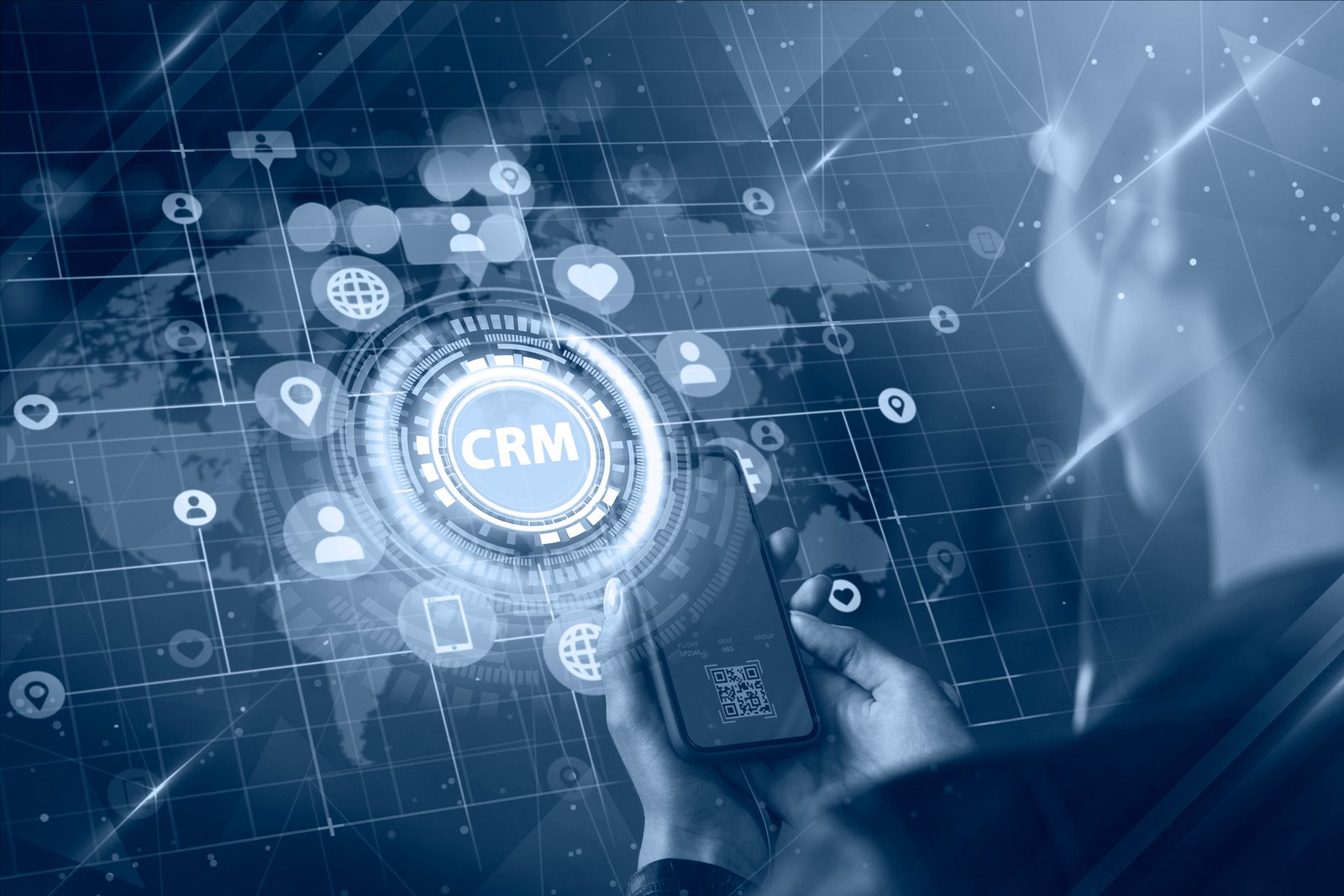
CRM Software Design
At Vintage Digital Solution Designing CRM (Customer Relationship Management) software involves creating a user-friendly, efficient, and comprehensive system that helps businesses manage their interactions with current and potential customers.
Here are the key components and considerations for designing effective CRM software:
1. User Interface (UI) Design
Clean and Intuitive Layout: Ensure the interface is uncluttered and easy to navigate. Use consistent design elements such as buttons, fonts, and colors.
Dashboard: Provide a customizable dashboard where users can view key metrics and updates at a glance.
Responsive Design: Ensure the CRM is accessible on various devices, including desktops, tablets, and smartphones.
2. User Experience (UX) Design
Ease of Use: Simplify complex tasks with streamlined workflows and reduce the number of clicks required to complete actions.
Personalization: Allow users to customize their experience, such as adjusting views, filters, and notifications.
Onboarding: Provide an intuitive onboarding process with tutorials, tooltips, and contextual help to assist new users.
3. Core Features
Contact Management: Store and manage customer information, including contact details, communication history, and notes.
Lead Management: Track and manage potential customers through the sales pipeline, from initial contact to closing the deal.
Sales Automation: Automate repetitive tasks such as follow-up emails, scheduling, and reminders.
Marketing Automation: Integrate tools for email marketing, campaign management, and customer segmentation.
Customer Support: Include features for ticketing, case management, and knowledge bases to improve customer service.
Reporting and Analytics: Provide detailed reports and analytics on sales performance, customer behavior, and marketing effectiveness.
4. Advanced Features
Integration Capabilities: Allow integration with other tools and platforms, such as email services, social media, and e-commerce platforms.
Artificial Intelligence (AI): Implement AI for predictive analytics, chatbots, and personalized recommendations.
Workflow Automation: Enable users to create custom workflows to automate business processes.
Mobile Accessibility: Ensure the CRM is fully functional on mobile devices with a dedicated app or responsive web design.
5. Security and Compliance
Data Security: Implement robust security measures to protect customer data, including encryption, access controls, and regular security audits.
Compliance: Ensure the CRM complies with relevant regulations such as GDPR, HIPAA, and CCPA, depending on the industry and location.
6. Scalability
Modular Design: Create a modular system that allows businesses to add or remove features as needed.
Performance Optimization: Design the CRM to handle increasing amounts of data and users without performance degradation.
7. Customization and Flexibility
Custom Fields: Allow users to add custom fields to capture specific data relevant to their business.
Role-Based Access: Implement role-based access controls to ensure users only have access to the data and features relevant to their role.
APIs: Provide APIs for developers to build custom integrations and extend the CRM鈥檚 functionality.
8. Collaboration Tools
Communication Channels: Integrate communication tools such as email, chat, and video conferencing.
Task Management: Include features for task assignment, tracking, and collaboration among team members.
Document Management: Enable users to upload, share, and manage documents within the CRM.
9. Feedback and Continuous Improvement
User Feedback: Incorporate mechanisms for users to provide feedback and suggestions.
Regular Updates:
Everything you need to know about services
CRM (Customer Relationship Management) software helps businesses manage interactions with customers and potential customers. It centralizes customer data, tracks interactions, and improves communication, ultimately enhancing customer relationships and driving sales growth.
A custom CRM can include features like contact management, sales tracking, lead generation, customer support, reporting and analytics, automation of marketing tasks, and integration with other business tools, tailored to meet your specific business needs.
The timeline for designing and implementing a custom CRM solution varies based on the complexity and specific requirements of your business. Typically, the process can take anywhere from a few weeks to several months, including design, development, testing, and training.
Yes, our CRM software can be designed to integrate seamlessly with your existing systems, such as email platforms, marketing automation tools, and accounting software, ensuring a smooth flow of information across your business processes.
We offer ongoing support and maintenance services, including troubleshooting, software updates, user training, and customization options to ensure your CRM continues to meet your evolving business needs effectively.

